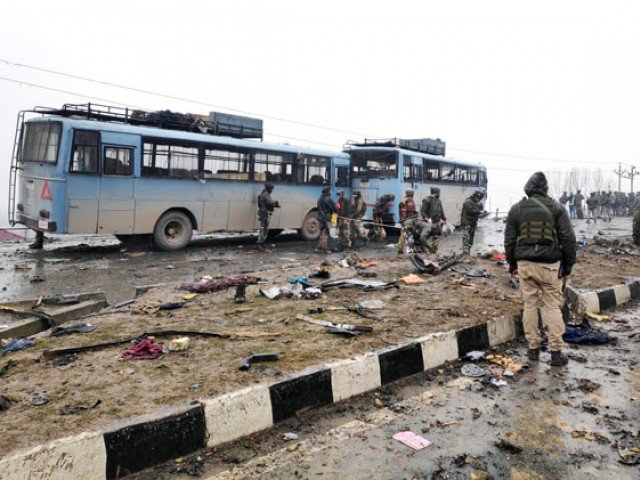The discipline of international relation is an interesting field of study largely (presumably) because of its clear-cut theories such as realism, liberalism, Marxism, etc. Democratic peace theory is a major strand of liberalism which states that modern democracies do not wage wars against one another due to their democratic institutions. Such democratic institutions make the government inclusive, participative, accountable and responsive within the country, thus preventing it from resorting to wars against another democracy through the chain of public opinion and a rigorous process of procedure which bar the state from venturing into wars.
But, India’s highly hawkish behaviour in the post-Pulwama incident has made it abundantly clear that democracies, particularly the developing ones, are also prone to wars against one another on grounds of national security, national interest or sectional interest.
A theory basically provides an unambiguous direction on a certain matter of discussion, limit the discourse within a parameter and helps predicate the current situations and possible future happenings with relative objectivity and accuracy.
But, sometimes, some weak theories fail to correctly predicate a situation which, therefore, steadily become irrelevant and invalid with the passage of time on account of abrupt changes in the world politics. The same fate seems to have befallen on democratic peace theory after the election of some ultra-right wing, supremacist and white nationalist leaders in some major liberal democracies in the world.
The original author of the democratic peace theory was Immanuel Kant. In his book “To Perpetual Peace,” Kant argued that a world constituted of democratic republics would be more peaceful than a world made up of monarchies, whose kings can go to war with little personal risk.
But, changing dynamics of world politics demonstrate that democracies can also go to war against one another as well as against non-democratic states. More shocking is that liberal democracies have been largely responsible for either initiating wars with monarchical and despotic governments or militarily standing by dictatorial regimes to wage wars since the 1950s. For instance, Britain, France and Israel attacked Egypt in 1956 after Egyptian President Gamal Abdel Nasser had nationalized the Suez Canal in July of the same year. Moreover, the world’s strongest liberal democracy, the US, emboldened Saddam-led Iraq to fight against Iran from 1980 to 1988.
After the disruptive Pulwama incident, India, the largest democracy in the world in numerical terms, hammered out an ill-conceived plan to execute its troublesome Cold Start Doctrine against Pakistan. New Delhi blatantly violated Pakistan’s sovereignty by carrying out alleged airstrikes inside Pakistan’s territory on February 26 this year. The Modi government adopted a hawkish tone and repeatedly issued war-mongering statements to instigate Pakistan for a full-blown war. The BJP government, unprofessional Indian media and some extremist sections of Indian civil society employed all tactics to cause a deadly war between the two South Asian nuclear powers. Kant’s thesis suggests that Indian democratic institutions should have restrained the hawkish BJP government from being hell-bent upon starting a war against Pakistan, as the military is also not allowed to call the main shots in India.
If this discourse is premised on empirical research, it seems that the military establishment always calls the shots in terms of shaping Pakistan’s relations with India. The proponents of democratic peace theory opine that since the security establishment controls the direction and nature of Pakistan’s relations with India, this theory cannot be applicable in true sense in the context of Indo-Pak relations.
But, soon after the post-Pulwama incident, it was seen that the civilian and military leadership in Pakistan were on the same page with respect to containing the brewing situation and normalizing relations with India. Despite Indian blunder to carry out the Balakot strikes and the irresponsible behaviour of immature Indian media to exaggerate the incident, the security establishment in Pakistan endeavoured to de-escalate the situation and employed all tools to contain the situations from drifting out of control. However, the Pakistan Airforce befittingly responded by downing one IAF MIG- 21, captured the pilot alive and dropped payloads inside Indian-Occupied Kashmir to teach a lesson to India that any misadventure could prove fatal to New Delhi. Presumably, the PTI government in Pakistan behaved more democratically and responsibly than that of India’s.
As far democratic peace theory in South Asia, a critical, empirical and objective analysis makes it crystal clear that the balance of terror and deterrence played a decisive role to discourage Pakistan and India from resorting to a brutish, nasty and short war against each other after the Pulwama incident. As the balance of power is largely inapplicable in South Asia due to India’s conventional superiority, the balance of terror owing to the presence of nuclear weapons and the resultant mutually assured destruction (MAD) have impeded an all-out Indo-Pak war since 2000.

According to John Mearsheimer, Germany was governed by largely democratic institutions on the eve of the WWI, but it still supported Austria-Hungry militarily against Serbia and fought against some democratic European countries such as France and Britain during the WWI. Though democratic processes and institutions discourage unnecessary wars, yet the final decision still remains at the disposal of the top leadership. For instance, German Emperor Wilhelm II dragged his country to the WWI and President Bush got the US bogged down in a disruptive war with Iraq in 2003. A deep study of the German war against European powers between 1914 to 1918 and the Bush administration’s invasion of Iraq on the false pretext of WMD patently indicate that the top leadership took the final decision to go to war in consultation with their deep states. Democratic processes and institutions were, therefore, sidelined and disregarded.
As proponents of democratic peace theory suggest that if Germany and the US followed the democratic processes, they would not have resorted to wars in 1914 and 2003, respectively. But, when war becomes inevitable either for national security, sectional interest, vested interest or national interest, then democratic institutions are mostly sidelined by hawkish and war-mongering leaders.
Mansfield and Snyder have tried to prove that young democracies without fully formed domestic institutions are especially aggressive; their examples range from France’s disastrous 1870 attack on Prussia to Turkey’s 1974 invasion of Cyprus to Vladimir Putin’s continuing brutal clampdown in Chechnya. Scholars of democratic peace theory agree that democratic peace exists only when established liberal democracies face one another. What this scribe opines is that even liberal democracies would strike one another militarily to protect their core national interests and national security when the need arises.
Compared to the democratic peace theory, commercial peace theory seems to remain more valid and relevant in contemporary international relations. According to Professor Andrew Moravcsik of Princeton University, a high level of economic interconnectedness and bilateral trade stop states from waging wars against one another. For instance, despite the heightened tensions over Dokhlam, both India and China refrained from a full-blown war in September 2017. Though deterrence and the balance of terror left obstructive impacts, yet over $100 billion bilateral trade between Beijing and New Delhi actually played the deceive role to prevent a major war between the two countries in 2017.
In a nutshell, democratic peace is possible only between ‘highly’ effectual liberal democracies with long term convergent interests. As stated above, weak liberal democracies can also take recourse to wars against one another to safeguard their national security and national interest. This theory does not function effectively in cases where developing democracies are involved as seen in the post-Pulwama incident. In such cases, other factors such as deterrence and the balance of terror prevent war and compel states to de-escalate tensions and normalize strained relations, especially in order to escape MAD.




